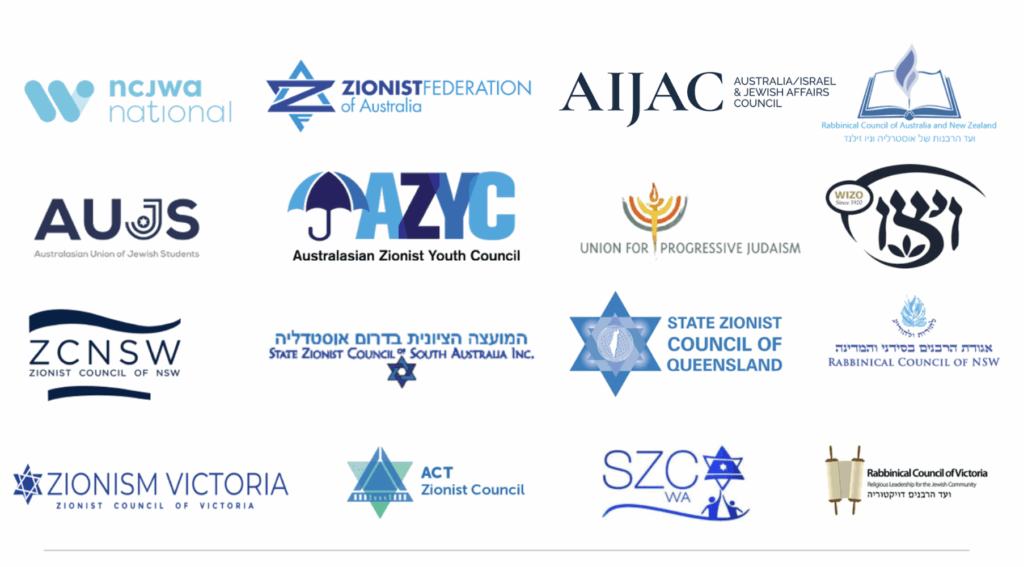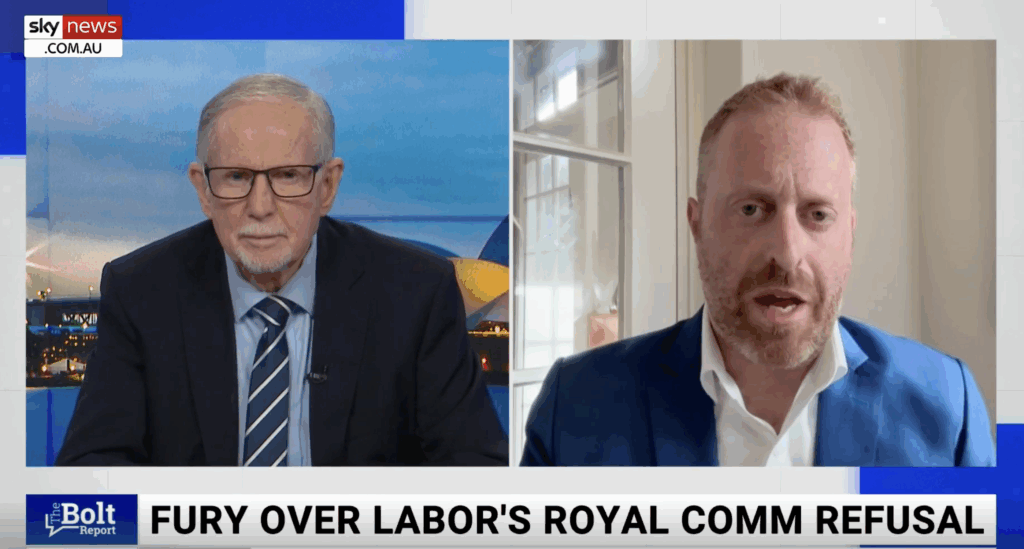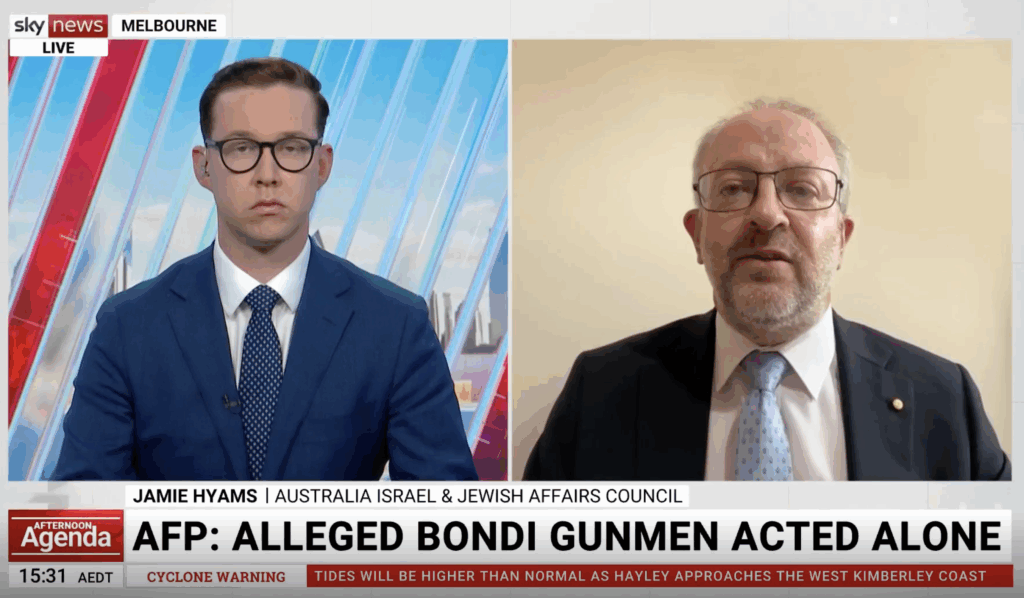UPDATES
A New Phase in Iraq / Peace Advice
September 8, 2010
Update from AIJAC
September 8, 2010
Number 09/10 #03
US President Barack Obama gave a major speech on Iraq last week to mark the promised withdrawal of all US combat troops from Iraq by the end of August. (Some different comments on the speech are here, here, here, and here.) However, rather than discuss the speech itself, this Update looks at the future of Iraq now that coalition forces are no longer doing most of the fighting, and the Western foreign policy challenge given the changed situation in the country.
First up is some comment from Ambassador Ryan Crocker, the former US ambassador to Iraq who is generally credited with having done much to shore up the political situation in the country in parallel with the troop “surge”. He argues that, given the political situation in Iraq, the US remains “the indispensable broker, mediator and catalyst” but that there is “a Washington clock that runs much faster than the Baghdad clock” in terms of willingness to see through the needed steps. He argues that August 2010 does not need to and should not mean an end to intense US involvement in fixing the problems of Iraq. For his complete argument, CLICK HERE.
Next up is former American official and academic analyst Paul Wolfowitz who proposes a specific model for further US involvement in Iraq after the end of combat operations – namely, South Korea. He points out that at the end of the unpopular and costly Korean war, America did not abandon South Korea, and still has troops there to this day. Further, the US role in Korea has not only been a strategic asset for the US, but has helped foster hugely positive economic and political transformations for South Korea. For Wolfowitz’s efforts to apply these lessons in detail to Iraq, CLICK HERE. Also calling for a continuing US commitment to Iraq, as well as commenting on Obama’s statements on Afghanistan, is veteran US foreign policy expert Richard Haass.
Finally, we offer some additional salient advice to the Obama Administration on fostering the now renewed Israeli-Palestinian direct talks, from former US National Security Council expert on the peace process Elliot Abrams. Abrams has three lessons he hopes the Obama Administration will heed: not to interfere too often or directly in bilateral negotiations; not to focus on the negotiations to the exclusion of the improving the reality on the ground in the West Bank; and to avoid pursuing a “framework agreement” which would require both sides to make their most painful concessions on core issues without any assurances that a final peace would follow quickly. For his full explanation of why these mistakes should be avoided, CLICK HERE. Making a similar point about the danger of too ambitious a goal in the talks is a series of experts interviewed by the New York Times. Some further peace advice going forward comes from Israeli terrorism expert Boaz Ganor, British journalist Michael Weiss, renowned Israeli political scientist Shlomo Avineri and Israeli author and journalist Yossi Klein Halevi.
Readers may also be interested in:
- A piece discussing the significance of the Iraqi invasion of Kuwait, 20 years ago this August, from noted Middle East scholar Fouad Ajami.
- New polls in the US showing that most Americans, unlike a few years ago, now believe that initiating the Iraq war was the right policy and made the US safer (downloads a pdf), and that the war overall was successful (scroll down to the end).
- Meanwhile, most Iraqis feel the US troops are being withdrawn too quickly, according to a poll. More about the uncertainty Iraqis are expressing is reported here.
- The latest census finds Israel has grown to 7,645,000 people, and the population is both younger than most Western countries and has a higher life expectancy.
- Readers may recall a story from Israel a few weeks ago (see for instance the Melbourne Age version here) about a man convicted for “rape by deception” allegedly on the grounds that he was an Arab who claimed to be Jewish to seduce a woman. It has now emerged in Israeli reporting that this is very incomplete – reportedly, this was a case of alleged genuine rape by force, and the whole “rape by deception” charge was a plea bargain arranged to spare a highly vulnerable and traumatised victim from testifying. The full story is only in Hebrew, but an unofficial translation is available here, and a summary of the issue and new findings is here.
- Some frightening news on Iran from the International Atomic Energy Agency, noting that Iran has overcome the key enrichment technical challenge and can basically produce a bomb whenever it decides to, and already has enough material for three bombs.
Iraq needs U.S. engagement, and a slower clock
By Ryan C. Crocker
Washington Post, Tuesday, August 31, 2010
Much has been written in recent days about Iraq and anniversaries. August 1990: Iraq invades Kuwait. August 2010: The last U.S. combat brigade withdraws from Iraq. Are these the bookends of a 20-year war? Did we win? What does winning mean?
The significance of August 1990 remains considerable. It was the dramatic opening of the post-Cold War era, in which regional actors, state and non-state, could operate without the constraints imposed by the two great blocs. We thought in those early days that the challenge was an opportunity — that an international response to this aggression would pave the way for a new world order, orchestrated by a benevolent America.
That, of course, is not how it turned out. A defiant Saddam Hussein hung on in Baghdad as an effort at international containment slowly unraveled in the 1990s. U.S. forces overthrew his regime in 2003 and, depending on your political preference, the withdrawal of combat forces this month brings to a close a protracted but successful campaign, or ended a prolonged exercise in misguided futility.
Except it didn’t. The exit of combat troops does not end the post-1990, non-polar disorder that Hussein’s invasion launched. He illustrated an international paradigm shift; he did not create it. Nor does it mean that Iraq is now “over.” All of the momentous events of the past 7 1/2 years notwithstanding, Iraq is still at the beginning of its new story, with a future that will be defined by events that have not yet taken place. We have a vital strategic interest in the shape of that future: a stable, pluralistic Iraq in close association with the United States and the West can fundamentally reshape the map of the Middle East. An Iraq that descends into chaos or a new autocracy will threaten the security of the region and the United States.
What are the challenges? Most immediately, that of forming a government. The difficulty and delays we have seen since the March elections illustrate the fundamental truth that everything in Iraq is hard and is likely to continue being hard. When the next government is in place, it will have to wrestle with the tough issues that have been shelved since the elections and their aftermath. These include the structural and constitutional issues underlying much of the tension between Kurds and Arabs in the north — disputed internal boundaries, especially Kirkuk, and the authorities of the federal government in Baghdad vis-à-vis the Kurdish regional government in Irbil, including the control of armed forces. These are akin to the states’ rights issues that were resolved neither swiftly or peacefully in this country.
The threat of al-Qaeda-sponsored terrorism persists in Iraq, as recent attacks have made clear. Iraq’s relations with its neighbors, especially Iran and Syria, remain difficult amid signs that Tehran is waiting for a U.S. exit to ramp up its efforts at destabilization and reclaiming the ground it has lost in Iraq the past several years. Other challenges include the rising popular impatience over economic stagnation and the lack of basic services; refugees; widespread corruption; and a growing imbalance between Iraqi military and civilian governance capacities.
The list goes on. It is not a record of failure but an illustration of the enormity of the challenges in Iraq. How successfully Iraqis deal with these challenges has a great deal to do with the level of U.S. engagement going forward, including the process of government formation. For the time being, we remain the indispensable broker, mediator and catalyst. But we also face the persistent problem of a Washington clock that runs much faster than the Baghdad clock. Recent polling in both countries reveals an Iraqi public fearful of the consequences of a U.S. departure, while American opinion leans toward doing just that. Regional realities and American expectations seldom coincide. Our lack of strategic patience is something that, over time, our adversaries have come to count on and our allies to fear — in Lebanon, Iraq, Afghanistan and Pakistan.
In Iraq, fortunately, we have a structure to support sustained U.S. engagement: the Strategic Framework Agreement negotiated and signed under the Bush administration, along with the security agreement. That agreement, embraced by the Obama administration, outlines a framework for cooperation in security and other fields, including diplomacy, economics, trade, education, science, technology and communications. It envisions a groundbreaking long-term partnership with Iraq that could fundamentally alter the strategic map of the Middle East. Such a relationship will take sustained U.S. engagement and resources, increasingly more civilian than military. And it may be that a new Iraqi government will request a U.S. military presence beyond the end of 2011. If so, I hope we will listen carefully.
August 1990 has meaning. August 2010 really does not — unless we invest it with such by declaring that we are leaving the field in a long war that will roll on without us in Iraq and elsewhere to our great peril. Americans have always shown a willingness to step up to a challenge when they understand the stakes. I hope the president will sound some of these themes in his coming address on Iraq.
The writer, dean of the George Bush School of Government and Public Service at Texas A&M University, was the U.S. ambassador to Iraq from 2007 to 2009.
Back to Top
————————————————————————
In Korea, a Model for Iraq
By PAUL D. WOLFOWITZ
New York Times, August 30, 2010
VICE PRESIDENT JOE BIDEN, who traveled to Iraq this week to mark the formal end of United States combat operations there, has claimed that peace and stability there could be “one of the great achievements” of the Obama administration. Of course, the largest share of credit belongs to the brave men and women of the American military, who have sacrificed so much and persevered through so much difficulty. Credit also goes to the Iraqi Army and police forces who have fought bravely and increasingly well, and to Iraq’s people, who have borne a heavy burden. But it is good that President Obama and his administration also claim credit, because success in Iraq will need their support.
My hope is that the president understands that success in Iraq will be defined not by what we withdraw, but by what we leave behind. At a minimum, we need Iraq to be a stable country, at peace both within its borders and with its neighbors. And we should help Iraq to one day become a leader of political and economic progress in the Middle East.
The aftermath of another American war is instructive. Fifty-seven years ago, an armistice ended the fighting in Korea — another unpopular conflict, far bloodier than the Iraq war, although shorter. Civilian casualties were horrendous, and the United States and its allies suffered more than half a million military casualties. The South Korean Army took the heaviest losses, but the United States also paid a high price: 33,739 killed or missing in battle and 103,284 wounded.
Gen. Dwight Eisenhower won the 1952 presidential election, in part, on a promise to end the war. According to a poll taken in April 1953, three months before the armistice was signed, 55 percent of the American public thought the war had not been worth fighting, whereas only 36 percent thought that it had.
Yet when the war was over, the United States did not abandon South Korea. We had done so in 1949, when our post-World War II occupation of Korea ended, opening the door to North Korea’s invasion the following year. This time, instead, we kept a substantial military force in South Korea.
The United States stuck with South Korea even though the country was then ruled by a dictator and the prospects for its war-devastated economy looked dim. With all its failings, South Korea was nevertheless a haven of freedom compared with the bleak and brutal despotism of North Korea.
We also understood that stability on the Korean Peninsula was critical for the peace of an entire region — a region that involved Japan as well as the Soviet Union and China. Most important, abandoning South Korea would have risked squandering all that had been gained.
Although South Korea has assumed the principal responsibility for its own defense, there are still 28,500 American troops on the peninsula. Our continued commitment prevented another war and today South Korea is a remarkable economic success story. A series of democratic elections, starting in 1987, have made it a political success story as well.
Some similar considerations apply to Iraq today. First, Iraq occupies a key position in the Persian Gulf, a strategically important region of the world — a position that is all the more important because of the dangerous ambitions of Iran’s rulers.
Second, whatever the failings of Iraq’s democracy, it bears no comparison to the regime that other hostile elements would impose. With all its imperfections, Iraq today is more democratic than South Korea was at the end of the Korean War, and more democratic than any other country in the Arab Middle East (with the possible exception of Lebanon).
We have withdrawn so many of our troops and relinquished a combat role because Iraqi security forces have been able to take on most of the security burden. Their numbers have grown from about 320,000 in December 2006 to more than 600,000 at the end of last year; they are also becoming more capable.
Of course, numbers are only part of the story, and Iraqi security forces still need assistance from the American military. Not surprisingly, the enemy has increasingly focused its attacks on Iraqi soldiers and police officers as the United States withdraws, although Iraqi losses are still far below what they were earlier in the war. Since June 2003, about 10,000 Iraqi security forces have been killed, twice the total of the United States and the entire international coalition.
Even as our combat commitment ends, our commitment to supporting Iraq must continue. That means continued political support, including offering our help in resolving the current stalemate over forming a government. (It’s worth remembering that much of the difficulty the Iraqis are encountering arises from a Constitution and electoral system that the international community helped design. Moreover, this example of peaceful negotiations to create a government is something new in the Arab world.)
Our commitment must also include continued material support, particularly in the form of military and technical assistance. And though we have agreed to withdraw all our troops by the end of next year — a pledge that we must honor if the Iraqi government so desires — we need to remain open to the possibility of a mutually agreed longer-term security commitment or military presence for deterrence and support.
It is well worth celebrating the end of combat operations after seven years, and the homecoming of so many troops. But fully abandoning Iraq would damage the interests of the United States in the region and beyond. Maintaining a long-term commitment, albeit at greatly reduced cost and risk, is the best way to secure the gains that have been achieved with so much sacrifice.
Paul D. Wolfowitz, a visiting scholar at the American Enterprise Institute, was the deputy secretary of defense from 2001 to 2005.
Back to Top
————————————————————————
Three mistakes the U.S. must not make in the Israeli-Palestinian peace talks
By Elliott Abrams
Washington Post, Saturday, September 4, 2010
Talks this week mark the beginning of new negotiations between Israelis and Palestinians. If the parties can devise a compromise to get past the expiration this month of Israel’s partial freeze on settlement construction, they will be off and running.
How far they can run, however, depends on whether the United States can avoid three errors that would harm, and perhaps doom, the discussions.
The first mistake is to intrude too deeply and too often in what must be a bilateral negotiation. The Obama team appears poised to do just that, as it plans to send both Secretary of State Hillary Clinton and George Mitchell, special envoy for Middle East peace, to the next round in Sharm el-Sheikh, Egypt, on Sept. 14. Mitchell said this week that “the guiding principle will be an active and sustained United States presence” and “participation.” The best-informed Israeli columnists say this is a polite formulation for far more. As Nahum Barnea wrote in the widest-circulation Israeli daily, Yedioth Ahronoth, on Friday: “In all the talks that Israeli governments held in the past, with the Arab states and with the Palestinians, the Americans only got into the thick of the talks at the last stage. The talks were direct and bilateral . . . Not this time. This time the Americans intend to sit at the negotiating table and to stay there. The talks will be direct, but trilateral.”
This is a grave mistake: The Israelis and Palestinians do not negotiate seriously when U.S. officials are in the room; instead, they take positions designed to elicit American approval. The Bush administration tried trilateral talks, and the two sides argued more when we were present than when we were not. It’s no accident that negotiations that yielded agreements, such as Oslo, were not only begun without us at the table but were kept secret from us. The U.S. role is critical, but mostly in cajoling and reasoning with both parties — separately. Every session where Mitchell is present will be a lost opportunity for Palestinian and Israeli negotiators to dig in.
The second mistake — one the Bush administration made as well — is to concentrate on the negotiations and pay too little attention to life in the West Bank. Palestinians will give the talks no credence if their context is a worsening of conditions there, and whatever may be achieved at the table will be meaningless unless the Palestinian Authority (PA) is strong enough to enforce the agreements. And it doesn’t appear to be. Reuters reported this week that “the United Nations has warned of a looming Palestinian cash crisis.” Saudi contributions this year to the PA were “$30.6 million by August, compared to $241.1 million in 2009. The United Arab Emirates, which contributed $173.9 million in 2009, has yet to pay anything.”
It is impossible to believe the PA would once again be broke if the United States were paying adequate attention and exercising adequate pressure. The Bush administration had to remind, browbeat and shame Arab oil-producing states into forking over what they had pledged, much less what their oil riches would have allowed them to pay. But this is what happens if Washington concentrates on ceremonial details and not how the PA will meet its payroll. A Palestinian state will be built not at Camp David or Sharm el-Sheikh but in the West Bank, which is where our greatest efforts should be focused.
The third mistake would be to seek a “framework agreement.” Mitchell explained Friday that “Our goal is to resolve all of the core issues within one year. And the parties themselves have suggested and agreed that the logical way to proceed, to tackle them is to try to reach a framework agreement first. . . . A framework agreement is not an interim agreement. It’s more detailed than a declaration of principles, but is less than a full-fledged treaty. Its purpose is to establish the fundamental compromises necessary to enable the parties to then flesh out and complete a comprehensive agreement that will end the conflict and establish a lasting peace.”
Such an approach would doom the talks, regardless of whether the parties favor it. The difficult compromises necessary for a final-status agreement that resolves all the core issues will be made at the very end. The only way Palestinian President Mahmoud Abbas can defend such compromises is by delivering to Palestinians their own state; the only way Israeli Prime Minister Binyamin Netanyahu can do so is by saying Israel will now get peace, not only with Palestinians but with all Arab states.
All this cannot possibly happen until a final-status agreement is signed and implemented. Asking the parties to announce their “fundamental compromises” on the core issues when a final-status agreement is years away is asking them to commit political suicide. Those compromises will be balanced by no visible reward, and even a “fundamental compromise” such as “Jerusalem must be shared” or “Israel can protect its security in the West Bank” gets you nowhere without endless detail explaining what you mean. This isn’t Sinai, where there was only one easily grasped and implemented decision: Would Israel would give back every square inch?
It’s worth remembering that the Geneva Initiative, an unofficial effort by well-meaning Israelis and Palestinians to draft a full final-status agreement, came to 500 pages. A vague “framework agreement” could be a sign of progress that keeps the negotiations going beyond one year, but efforts to force the parties to announce their bottom lines in advance of the final settlement will never succeed.
These negotiations will be long and hard. If the United States commits these three mistakes, as we seem poised to do, we will make the difficult impossible.
The writer, a senior fellow for Middle Eastern studies at the Council on Foreign Relations, was a deputy national security adviser to President George W. Bush.
Tags: Iraq





